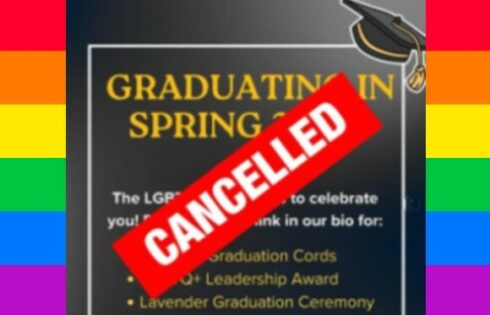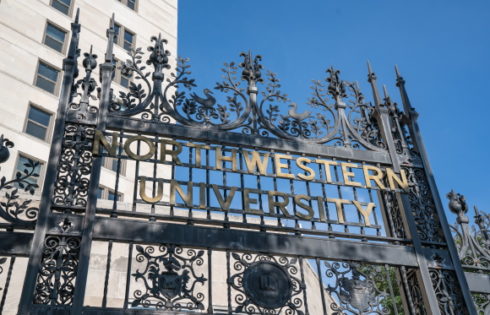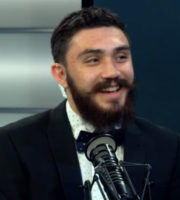
Struck down in court 14 years ago for similar suppression of students
The University of Texas-Austin is not only chilling speech by threatening to punish students for “incivility,” “rude” and “insensitive” comments, and other undefined behaviors.
It’s facilitating harassment against groups who are frequently targeted as rude and insensitive for simply expressing their political opinions, especially the Young Conservatives of Texas, according to a lawsuit filed against the public university Thursday.
The nonprofit membership association Speech First targeted several policies and practices at UT that allegedly run afoul of the First and Fourteenth amendments.
It’s representing three pseudonymous UT students with unpopular views on campus who are censoring themselves to avoid investigation and punishment for violating vague or undefined speech rules: a “Tea Party conservative,” a libertarian and a social conservative.
The lawsuit highlights four major issues with UT: its verbal harassment rules, the Acceptable Use Policy for campus information technology, a residence hall policy on civility and harassment, and its Campus Climate Response Team.
Officials have “created an elaborate investigatory and disciplinary apparatus to suppress, punish, and deter speech” that some find offensive, ignoring its loss in the U.S. District Court in Austin 14 years ago, Speech First claims.
It cites a ruling in favor of a campus pro-life group, later upheld by the 5th U.S. Circuit Court of Appeals, that sued the university for barring anonymous speech.
The Austin district court told UT the First Amendment does “not apply with less force” on campus than off, yet several current UT policies show that it’s “ignoring that admonition” from 2004, Speech First says.
The list of defendants takes up almost all of the lawsuit’s cover page. It includes President Greg Fenves, Dean of Students Soncia Reagins-Lilly, Vice President for Diversity and Community Engagement Leonard Moore, and 14 members of the Campus Climate Response Team. The university did not respond to a College Fix request for comment.
Speech First isn’t the first public interest group to warn UT that its vague policies inhibit students from exercising their First Amendment rights. The suit notes the university’s “red light” rating by the Foundation for Individual Rights in Education, which recognizes that UT’s speech policies are “backed by the threat of investigations” and “formal or informal University discipline.”
This afternoon, we filed a lawsuit against @UTAustin —Speech First v. Fenves et. al in our ongoing effort to help restore #FreeSpeech and expression to America’s universities. https://t.co/zD2w9H8F6C
— Speech First (@Speech_First) December 14, 2018
‘Forgetting that’ transgender people exist is a violation
UT has been on notice for 46 years that the Supreme Court will only tolerate state restrictions that “punish only unprotected speech” with “narrow specificity,” Speech First argues, citing 1972’s Wilson ruling.
Its verbal harassment policy, mentioned in university literature from the undergraduate catalog to the nondiscrimination policy, is the opposite of narrow. It prohibits “hostile or offensive speech” that “is not necessary to the expression of any … political, religious, philosophical, ideological, or academic idea,” without providing any “objective guidance” on what speech qualifies as “necessary” and thus exempt.
The policy encompasses a wide range of protected speech by banning even “insults” and “ridicule” directed toward a person for their “political views,” Speech First argues. Its various provisions unlawfully modify Supreme Court precedents, for example, by prohibiting harassment that is “severe or pervasive or persistent,” even though all three elements are required to show discrimination in an educational context.
The Acceptable Use Policy, which governs students’ access to email and internet, “prohibits communications that are ‘uncivil,’ ‘rude,’ or ‘harassing’” with no definitions. Punishments include suspension and “criminal prosecution.”
MORE: UT issues 29-point checklist on offensive Halloween costumes
The speech policies in the Residence Hall Manual apply to about a fifth of UT’s student population, with punishments ranging from probation, housing bans, discipline and even “presentations at hall meetings.”
The “incivility” rule bans speech that is “not respectful of the community” or “interfere[s]” with another person’s “individuality,” with no definitions. The harassment rule bans a wide range of “isms,” including “ableism” and “cissexism,” classified by the Nonbinary Wiki as “forgetting that” transgender people exist. An even murkier prohibition concerns “any other force that seeks to suppress another individual or group.”
The Campus Climate Response Team, established in 2011 by former President William Powers, uses the power of anonymous snitching to inhibit debate and discussion, even in the classroom, according to Speech First.
Created to handle outbreaks of “hateful or violent speech in a coordinated, campus-wide manner,” the team encourages anyone – not just victims, and not only UT community members – to report subjective incidents of bias connected to UT. It then investigates these reports, with punishment one possible outcome.
From September 2017 through October 2018, the team has investigated 100 reports, nearly half of them “verbal harassment or slurs.” They include “insensitive posts” on social media “pertaining to race, gender identity, or sexual orientation,” and “derogatory comments made on a … course Facebook page,” according to the lawsuit.
UT is hardly alone in maintaining this sort of team, as documented in a report by FIRE that found more than 200 teams across the country in 2016, some of which involve law enforcement. A few colleges have disbanded their teams because of their harm to speech and academic freedom, such as the University of Northern Colorado.
UT’s policies “irreparably” harm students who choose self-censorship over the likelihood of a university investigation and ongoing repercussions, such as trouble getting into graduate school, Speech First says:
The University’s policies are especially likely to chill or deter speech on controversial or politically charged topics, as well as humor, satire, and parody. The result is that all University students lose the opportunity to challenge, debate, and learn from the views and experiences of their classmates.
First Amendment lawsuit against University of Texas for ‘rude’ and ‘insensitive’ speech ban by The College Fix on Scribd
‘The University has taken no action’ against vandals and doxxers
One particular group at UT has drawn several hundred bias reports to the CCRT for just a few events, and it forms Speech First’s primary example of how campus policies are promoting the very incivility they claim to be fighting.
Young Conservatives of Texas has faced repeated disruptions to its events, abetted by the university’s top-down hostility to minority viewpoints, the lawsuit says.
This fall, students swarmed the group’s demonstration in favor of then-Supreme Court nominee Brett Kavanaugh, shouting obscenities and tearing up its signs, then maliciously publishing their members’ names and contact information.
“Upon information and belief, the University has taken no action” – despite its various policies mentioned in the lawsuit – “in response to these attempts to shut down YCT’s speech,” Speech First says. (One of its clients, “Student C,” explicitly cited his fears of selective enforcement by the CCRT as a reason for self-censorship.)
YCT also called off its intentionally provocative “Catch an Illegal Immigrant” event in 2013 – intended to spur debate on immigration – following a warning from UT’s diversity vice president that it would be “willfully ignoring the honor code.”
Despite never hosting the event, YCT was subject to nearly 600 reports to the CCRT, which met with its members, the suit claims. Another 200 reports were made in response to YCT’s “affirmative action bake sale” in 2016, intended to spur debate on the disparate treatment of people by their race and sex.
MORE: Student petition demands YCT kicked off campus
The university treated Turning Point USA as the bad guy when founder Charlie Kirk made an impromptu appearance on campus in October, even though it was student protesters who disrupted his event with expletives and vandalism, the suit says.
Since then, “the University has begun requiring student groups to obtain advance approval from the administration before inviting speakers to campus.” (Campus police did arrest one protester who splashed water on a TPUSA cameraman.)
Speech First asks the court for a declaratory judgment that the three policies and the CCRT violate the First and Fourteenth amendments. It also wants a permanent injunction again launching investigations or issuing even “informal punishments” for violations.
Speech First’s first lawsuit against the University of Michigan hit a legal setback in August, when a federal judge told the parties that the university’s bias response team doesn’t have “a lot of teeth.” The Justice Department has sided with Speech First, however.
MORE: Campus mob enraged by ‘Confirm Kavanaugh’ display
IMAGE: Jan Mika/Shutterstock
Like The College Fix on Facebook / Follow us on Twitter






Please join the conversation about our stories on Facebook, Twitter, Instagram, Reddit, MeWe, Rumble, Gab, Minds and Gettr.